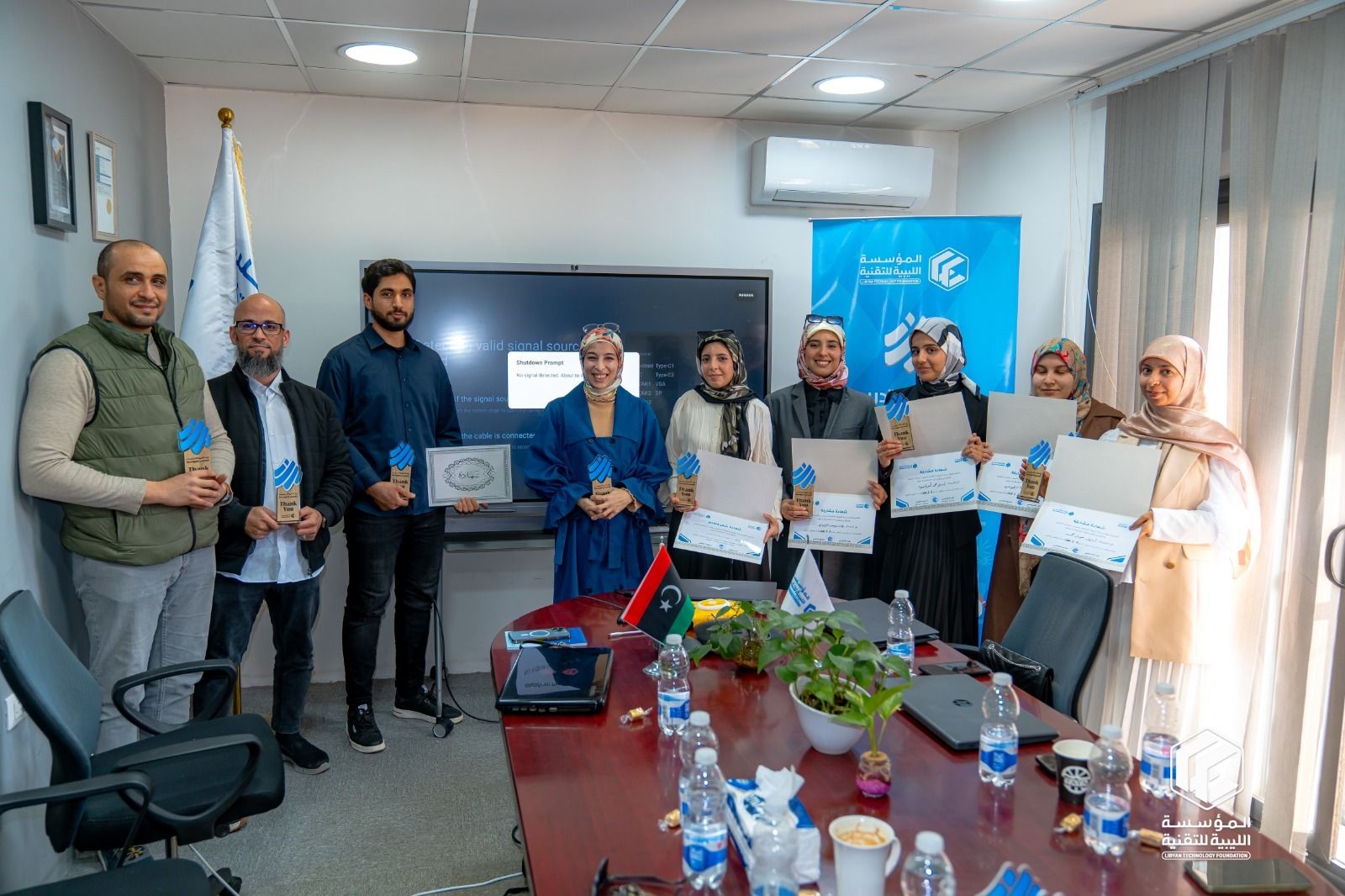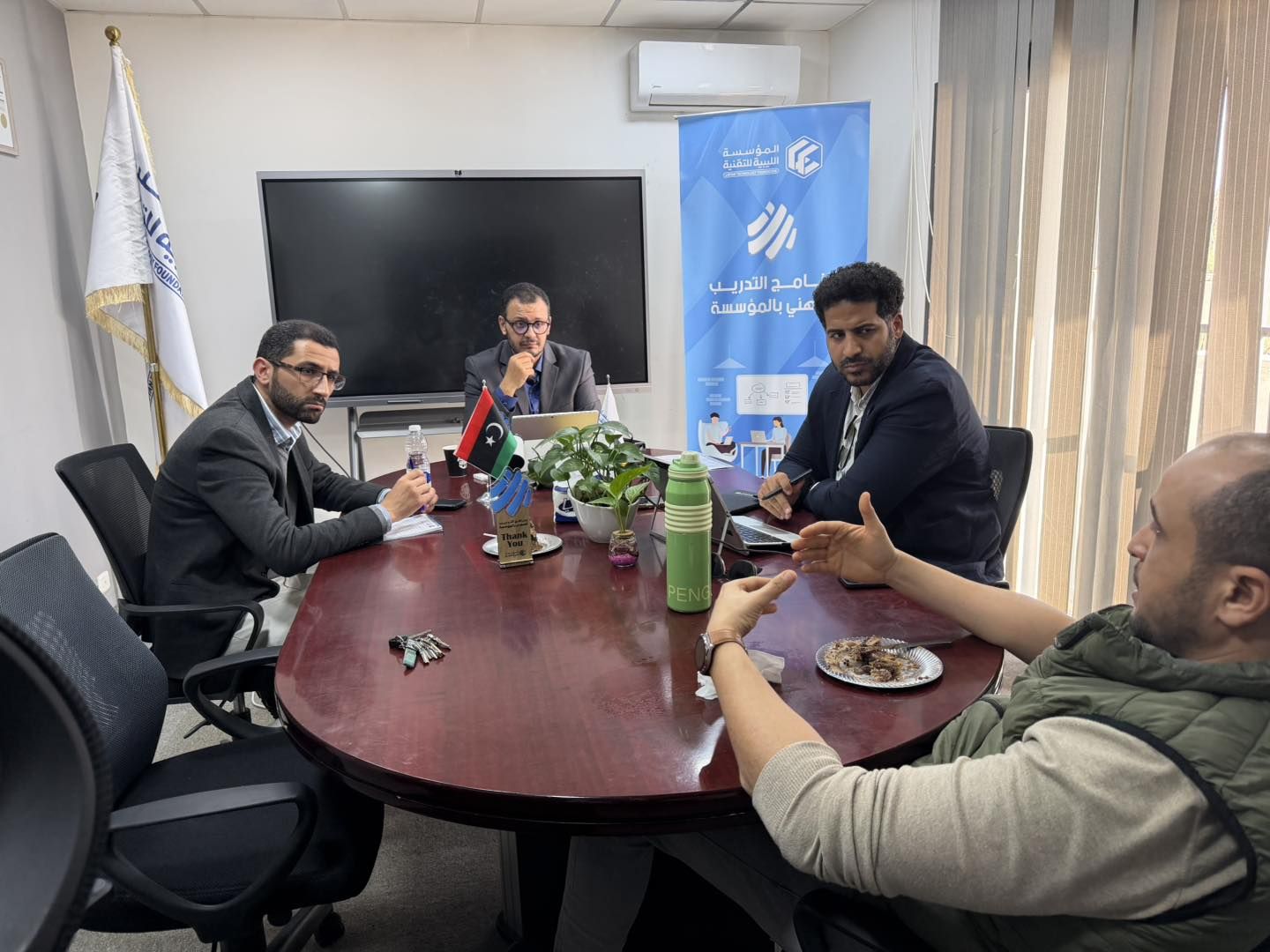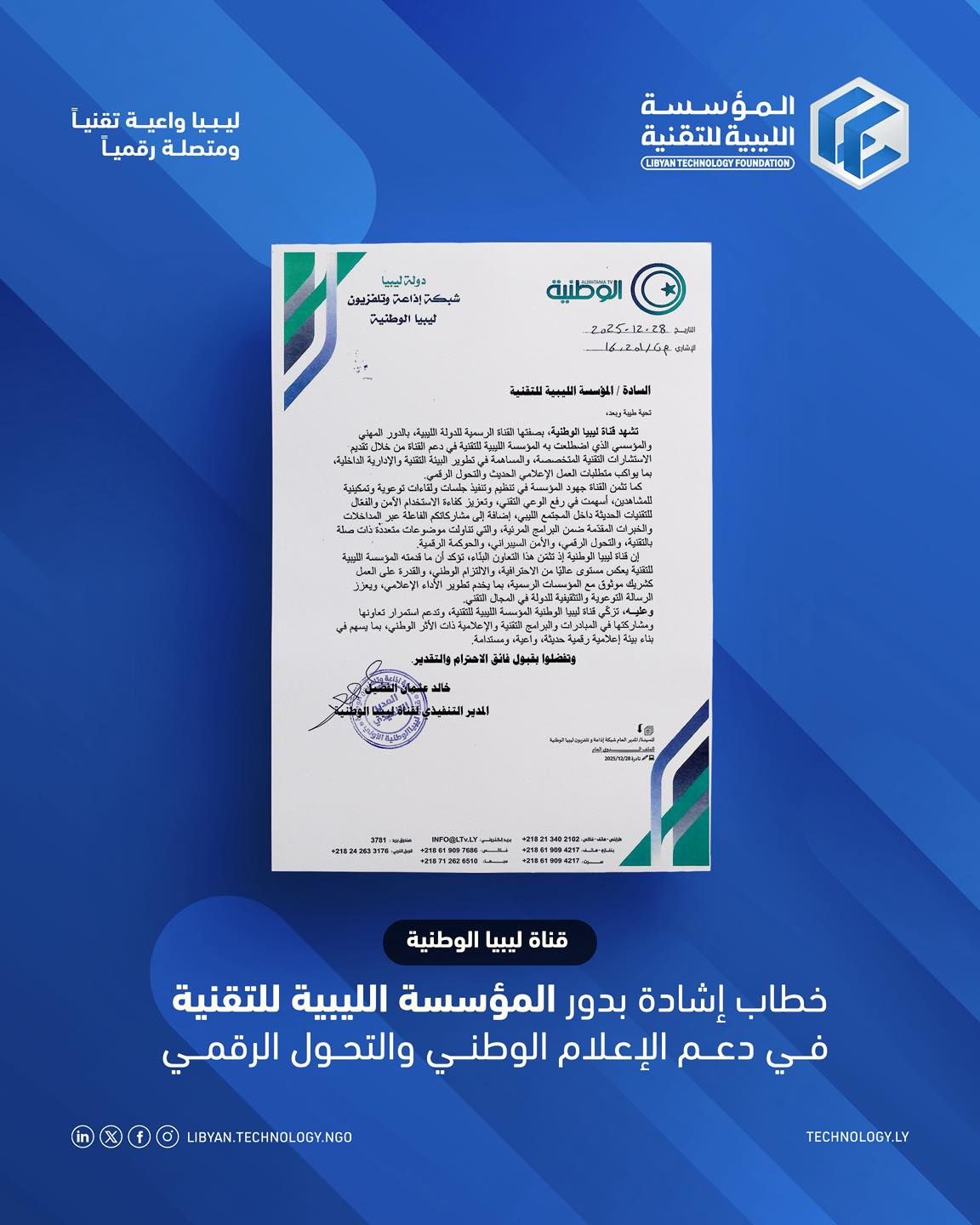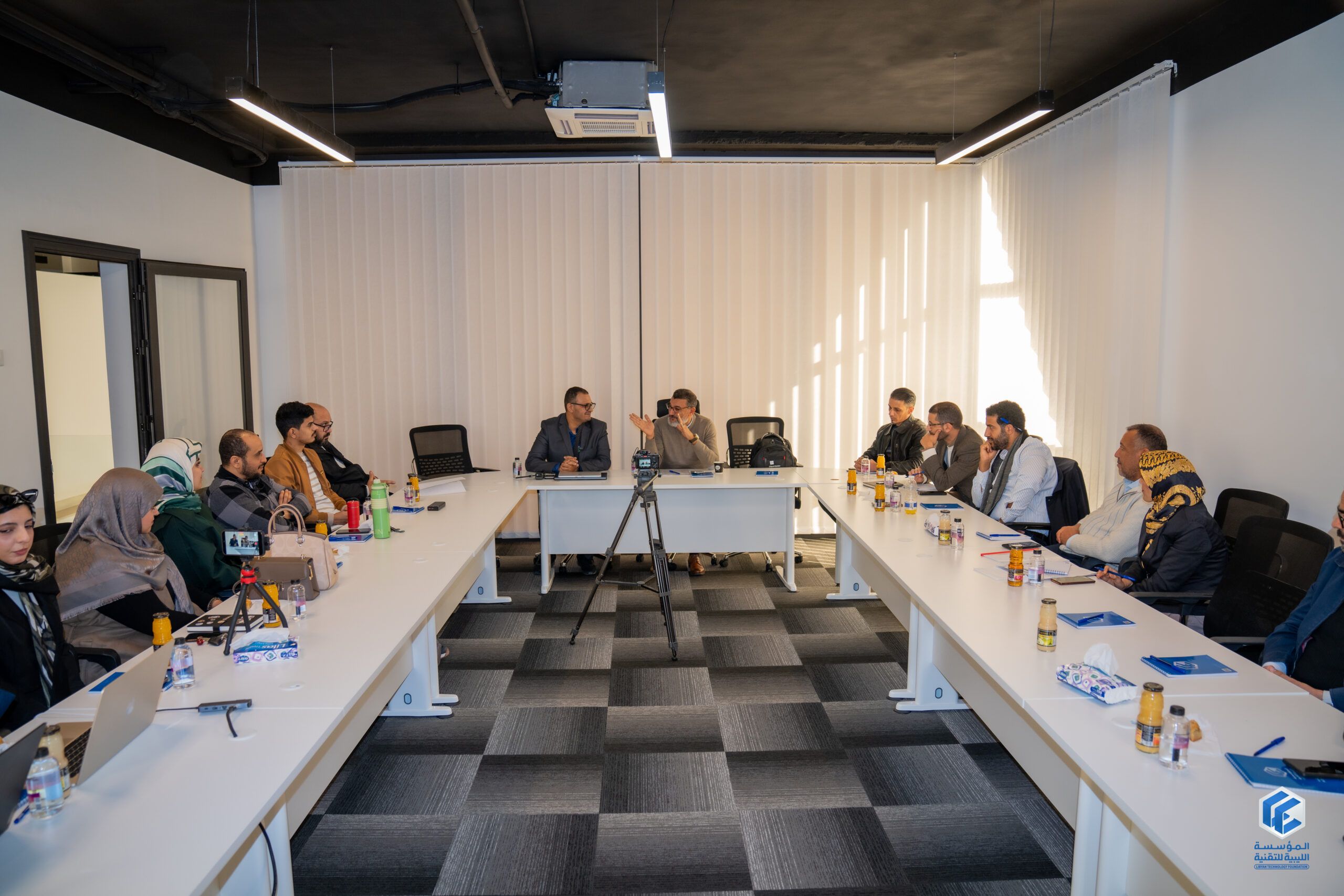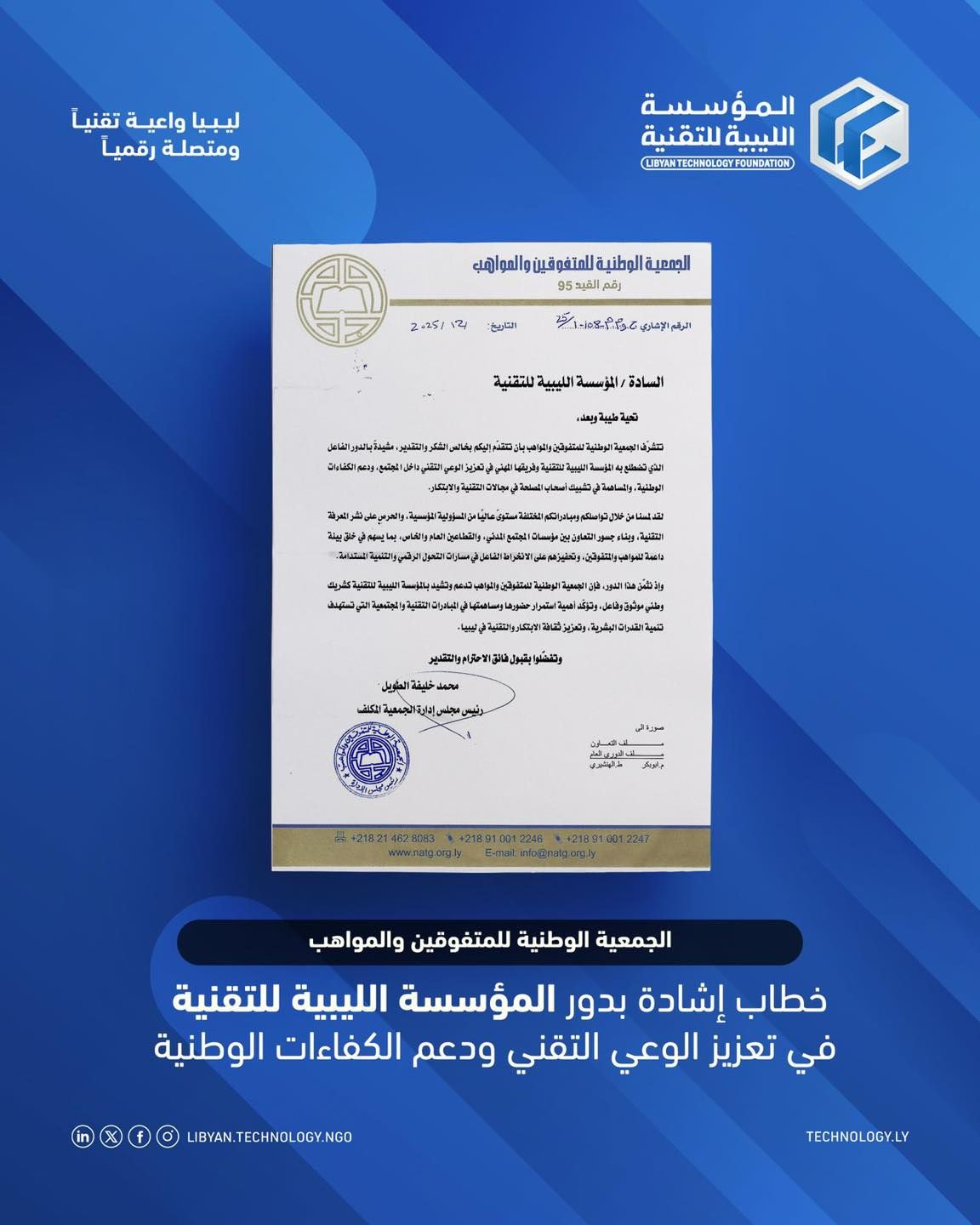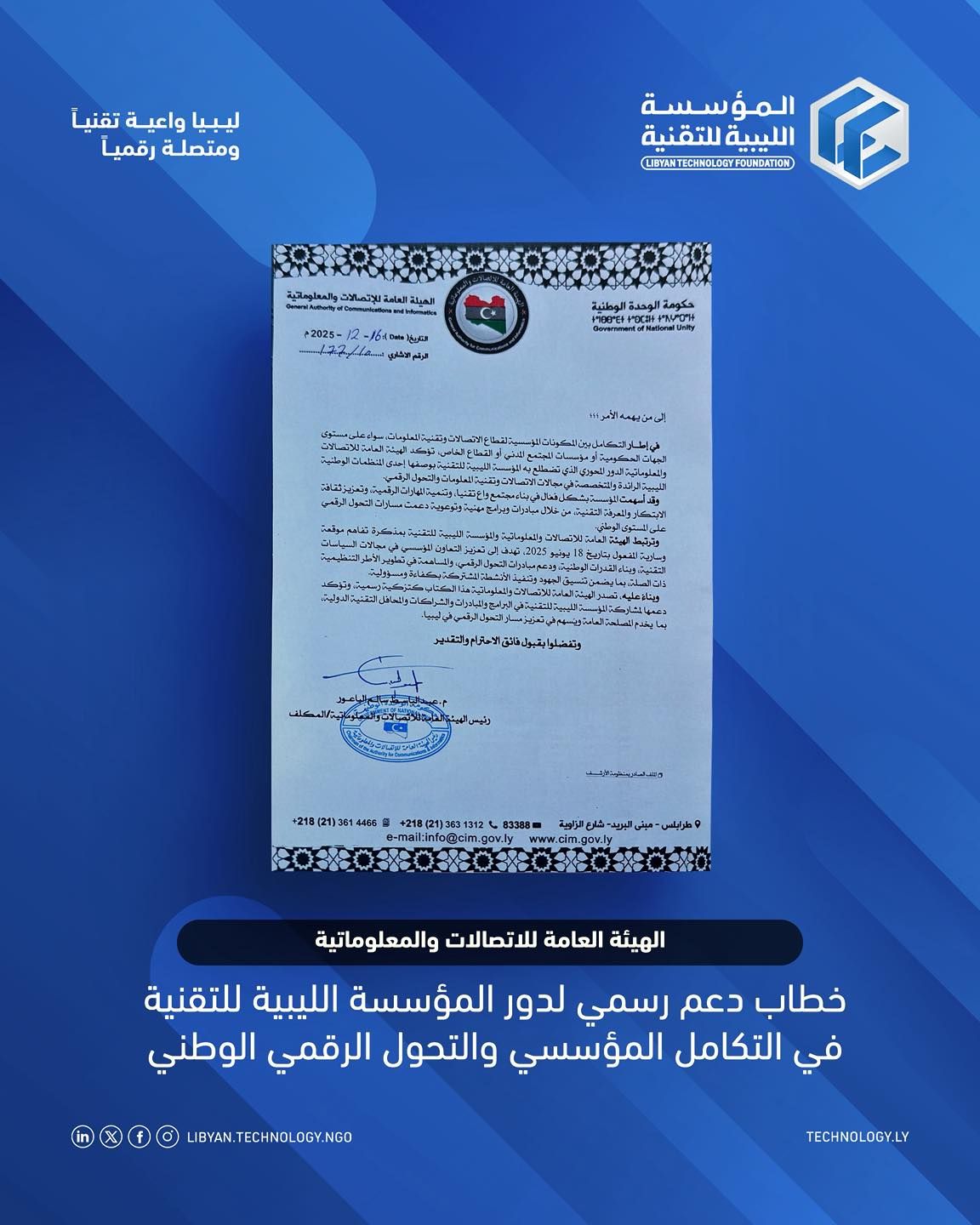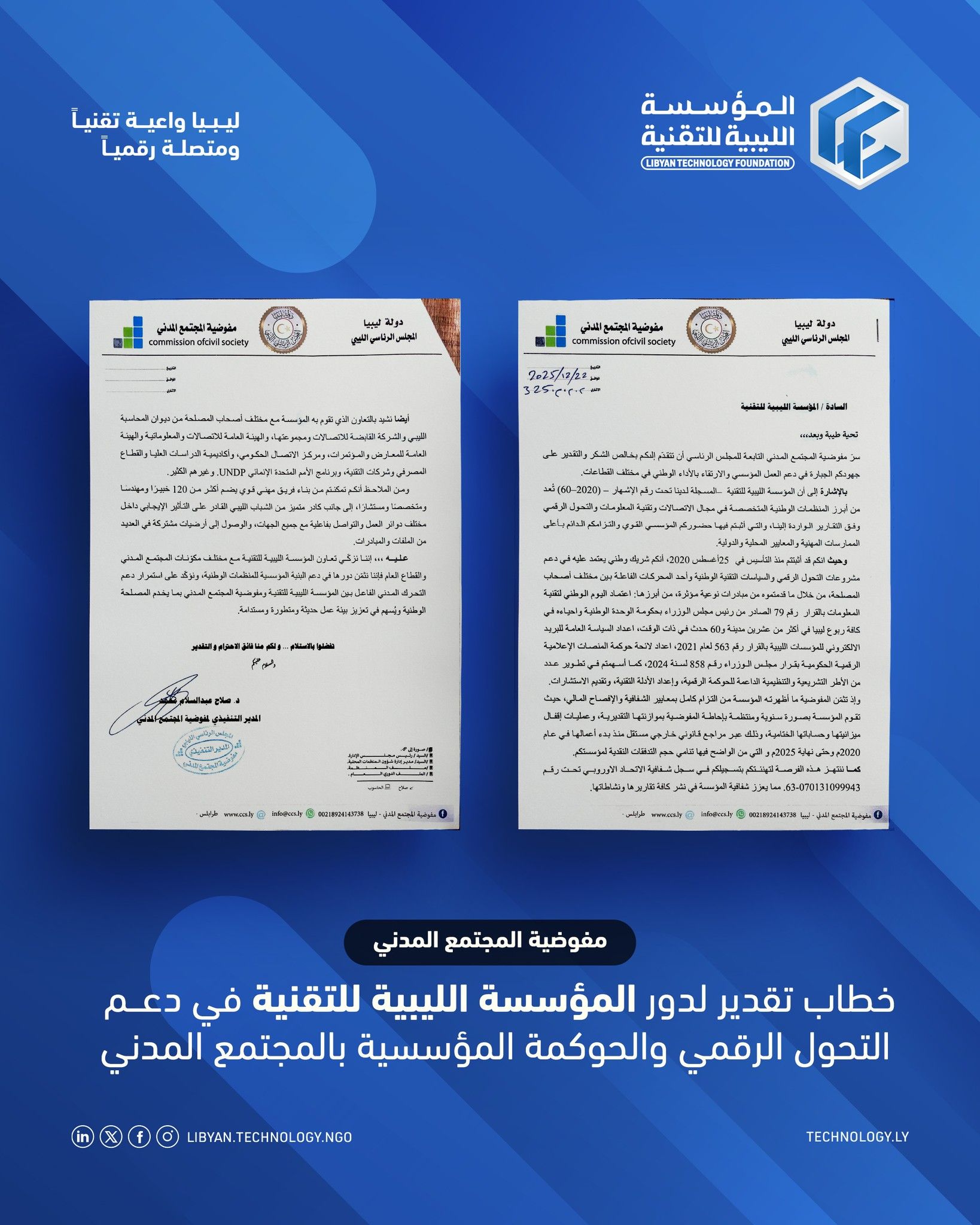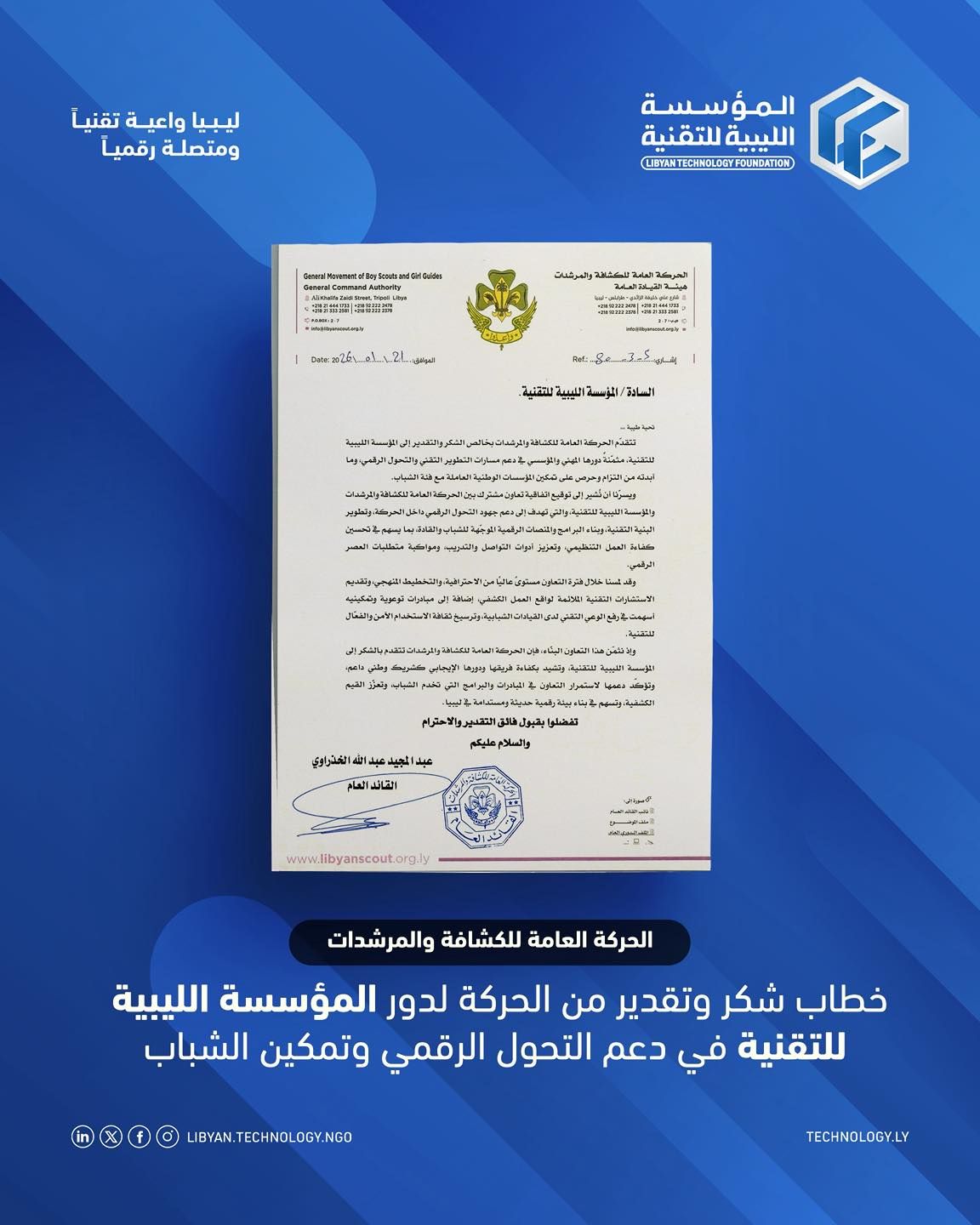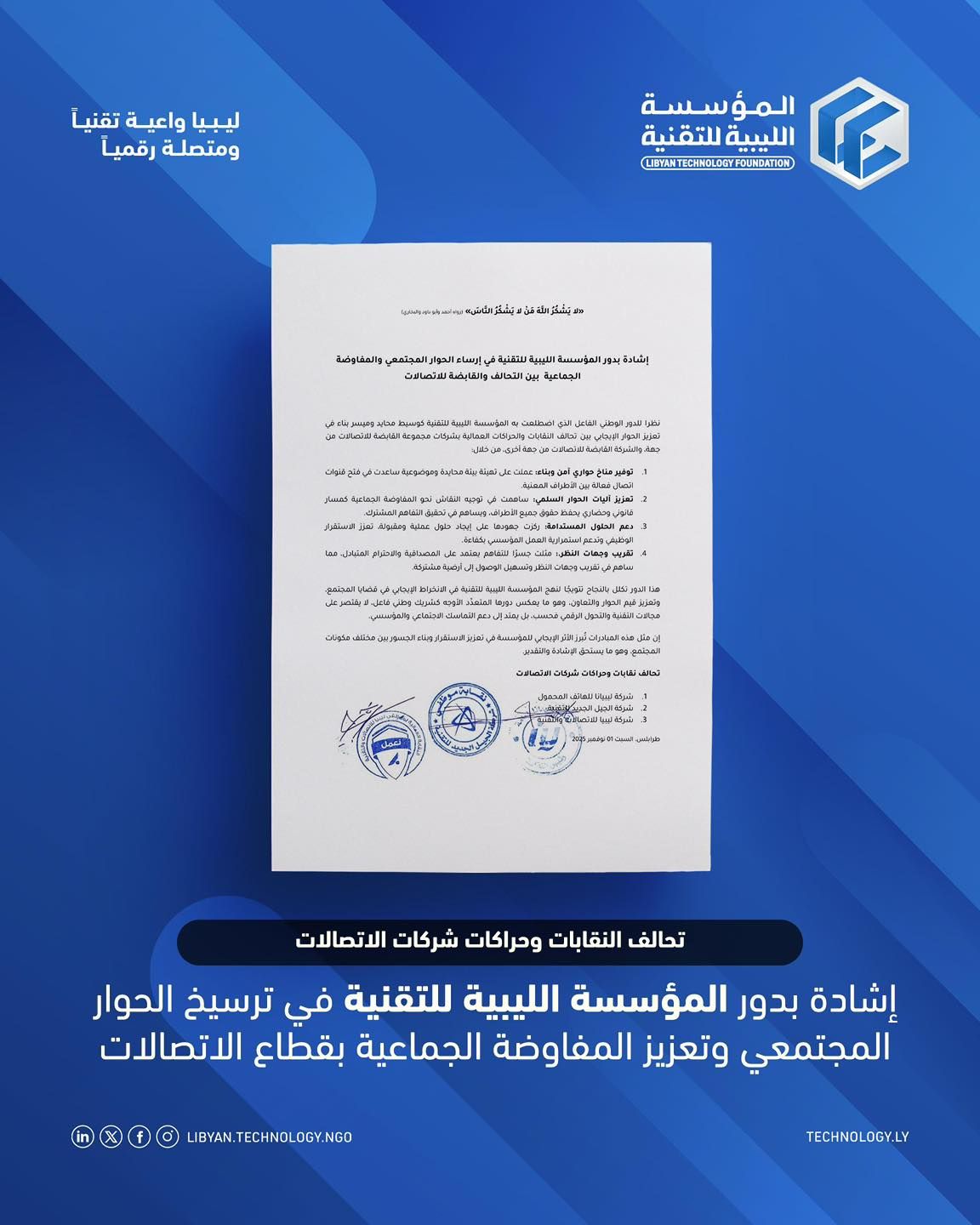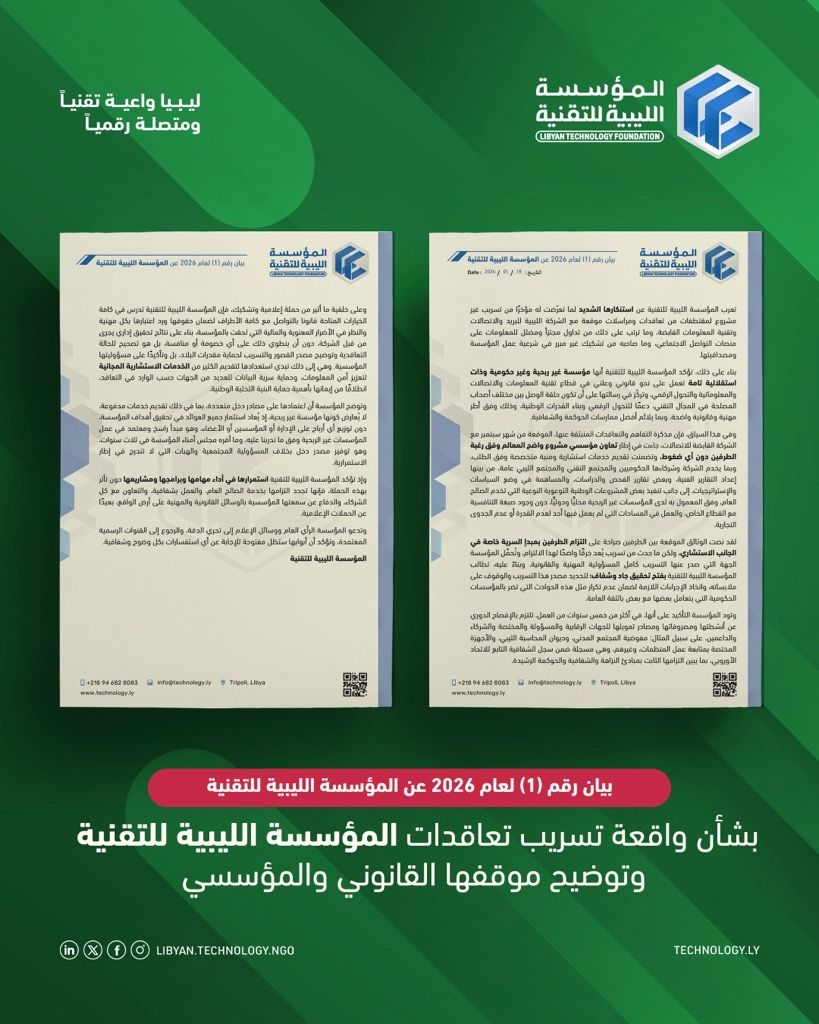The Libyan Technology Foundation expresses its strong condemnation of the recent unlawful leak of excerpts from contracts and correspondence signed with the Libyan Post, Telecommunications and Information Technology Holding Company. This leak led to the partial and misleading circulation of information on social media platforms, accompanied by unjustified questioning of the legitimacy of the Foundation’s work and its credibility.
Accordingly, the Libyan Technology Foundation affirms that it is a non-profit, non-governmental, and fully independent organization that operates legally and transparently in the fields of information technology, telecommunications, informatics, and digital transformation. Its mission focuses on serving as a connecting link between various stakeholders in the technology sector, in support of digital transformation and national capacity building, in accordance with clear professional and legal frameworks and aligned with best practices in governance and transparency.
In this context, the Memorandum of Understanding and the contracts derived therefrom, signed in September with the Telecommunications Holding Company, were concluded within the framework of legitimate institutional cooperation, clearly defined and entered into by mutual consent without any pressure. These agreements included the provision of specialized advisory and technical services upon request, serving the company, its government partners, the technology sector, and Libyan society at large. Such services included the preparation of technical reports, certain assessment and study reports, contributions to the development of policies and strategies, as well as the implementation of several high-quality national awareness projects that serve the public interest. This was carried out in accordance with practices adopted by non-profit organizations locally and internationally, without engaging in competition with the private sector, and by operating in areas where no actors were present due to lack of capacity or commercial feasibility.
The documents signed between the two parties explicitly stipulate a commitment to confidentiality, particularly in relation to advisory matters. Therefore, the leak that occurred constitutes a clear breach of this commitment. The Foundation holds the party responsible for the leak fully accountable for the professional and legal consequences. Accordingly, the Libyan Technology Foundation calls for a serious and transparent investigation to identify the source of the leak, examine its circumstances, and take the necessary measures to prevent the recurrence of such incidents, which harm public institutions that rely on mutual trust in their dealings.
The Foundation further emphasizes that over more than five years of operation, it has adhered to periodic disclosure of its activities, expenditures, and funding sources to the relevant supervisory, responsible, and competent authorities, partners, and donors. These include, by way of example, the Civil Society Commission, the Libyan Audit Bureau, and other entities responsible for overseeing the work of organizations. The Foundation is also registered in the European Union Transparency Register, demonstrating its firm commitment to the principles of integrity, transparency, and sound governance.
In light of the media campaign and questioning that have arisen, the Libyan Technology Foundation is studying all legally available options and engaging with all relevant parties to safeguard its rights and restore its reputation in a professional manner. It will also assess the moral and financial damages incurred by the Foundation, based on the results of an administrative investigation conducted by the company. This does not entail any dispute or competition, but rather constitutes a correction of the contractual situation and a clarification of the source of shortcomings and the leak, with the aim of protecting national resources and reaffirming the Foundation’s institutional responsibility. In this regard, the Foundation also expresses its readiness to provide numerous free advisory services to enhance information security and protect data confidentiality for various entities, as stipulated in the contract, stemming from its belief in the importance of safeguarding national infrastructure.
The Foundation clarifies that its reliance on multiple sources of income, including the provision of paid services, does not contradict its status as a non-profit organization. All revenues are reinvested in achieving the Foundation’s objectives, without distributing any profits to management, founders, or members. This is a well-established and approved principle in the operation of non-profit organizations, as practiced and as approved by the Foundation’s Board of Trustees over the past three years, particularly in ensuring a sustainable source of income beyond corporate social responsibility initiatives and grants that do not guarantee continuity.
While reaffirming its commitment to continuing its duties, programs, and projects without being affected by this campaign, the Libyan Technology Foundation renews its pledge to serve the public interest, operate transparently, cooperate with all partners, and defend its institutional reputation through legal and professional means on the ground, away from media campaigns.
The Foundation calls upon public opinion and media outlets to exercise accuracy and rely on official and approved channels, and confirms that its doors will remain open to respond to any inquiries with full clarity and transparency.
Libyan Technology Foundation
18-01-2026
